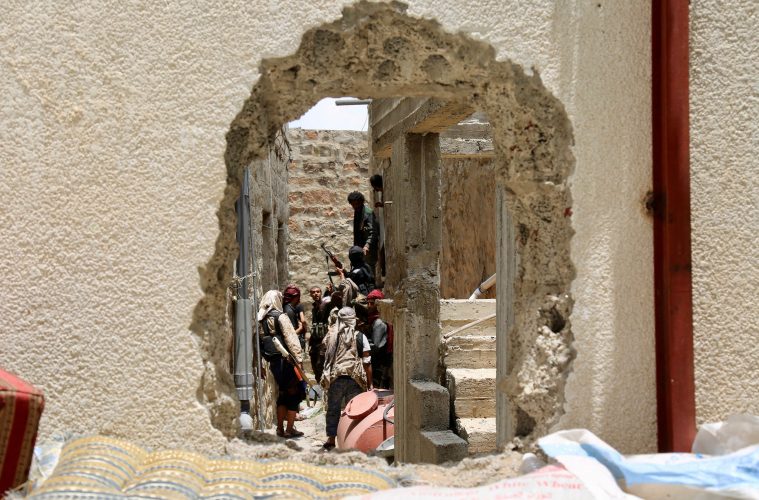In this article, I explore the relation and impact of violence on peace workers in the context of humanitarian assistance. During this exploration, I use my twelve years of extensive experience as a peace worker and mentor. Furthermore, I bring up how the violent context triggers the peace worker’s internal world. This triggering has a definite impact on how peace workers work, live and interact with other peace workers and local people.
I have worked as a peace worker to provide humanitarian assistance for more than a decade from the Northern Himalayas of Pakistan to Burkina Faso, from Iraq to South Sudan, from Libya to Yemen, from Somalia to Syria. I have also been deployed to precarious contexts such as active war zones, post and pre-civil wars, natural disasters, malnutrition emergencies and epidemics. Currently, I am based in Innsbruck and supervise humanitarian assistance programs in countries which are affected by natural disasters and armed conflicts. Besides this I am also mentoring Heads of Missions for another well-known international humanitarian organization.
Trained to Help Others
Some weeks ago, after an intense session of mentoring with a Head of Mission, I engaged in my own reflection. I realized that it is quite easy to work in war zones and to negotiate with tough governmental and non-governmental authorities but that it is quite challenging to deal and interact with some of the team members. As I am writing this article, I also realize that it is perhaps even more so challenging to deal with one self while working in this type of violent context.
Why is it at times challenging to deal and interact with team members? The nature of the work pushes peace workers towards extreme physical, emotional, psychological and spiritual experiences. This triggers internal chaos and anger. Peace workers are usually open and well trained to help others in violent environments but they are rarely aware or trained to help themselves, especially with regard to their own internal violent context, that concerns their inner struggles, conflicts and also traumatic experiences they may have had in the past. Not paying attention to these intra-personal dimensions of conflicts can lead to severe interpersonal conflicts with other team members. I have been repeatedly confronted with such situations where collaboration with other team members had become almost impossible.
Peace workers are usually open and well trained to help others in violent environments but they are rarely aware or trained to help themselves.
Peace workers spend vast amounts of energy and consideration on obtaining more data and information about the situation and what is happening, in order to understand and make decisions. Yet the awareness, consideration and integration of the effects such work has on the peace workers is lacking. Often, the emotional effects of the violence peace workers encounter in their missions leaves them with a feeling of loneliness. Ignoring their own needs makes them lose connection with themselves and the people they are connected to. On the mid- and long term, not remaining empathic to ourselves may not only lead to conflicts in the peace worker’s team but is also a prominent sign of burnout.
Self-Awareness
Working as a peace worker in violent contexts demands awareness of external as well as internal dimensions of conflict — a readiness to also listen to one’s emotions and feelings. This realization allows peace workers to search for a balance between outer and inner realities simultaneously.
This process of raising self-awareness can prevent burnout if it is continuously incorporated as part of peace work. Therefore, it must be addressed before the start of each mission and beyond its completion. The question of one’s own needs and limits should be raised already before going on mission, while taking care of oneself during the mission is another crucial part in this process. After the mission is done, self-reflection to understand what the peace work has done to one self and working on the process of integration of challenging experiences — that entails emotional pieces one carries back with them as fragments of memories — needs serious consideration in order to allow peace workers to smoothly integrate back into their families and communities.
Peace workers have to find a way to know themselves and their limits. Knowledge of personal limits means being aware of when to stop, when to say yes and when to say no to situations they find themselves in. This is not accomplished as a one-time task or evaluation. Rather this requires constant practice and also self-discipline. We are all transforming all the time. When you know yourself and your limits you can take better care of yourself and your team. Self-care practices such as cooking, reading, yoga, dance and breathing, to name just a few, may be excellent courses of action to address this issue. Such practices allow peace workers to be connected with themselves.

